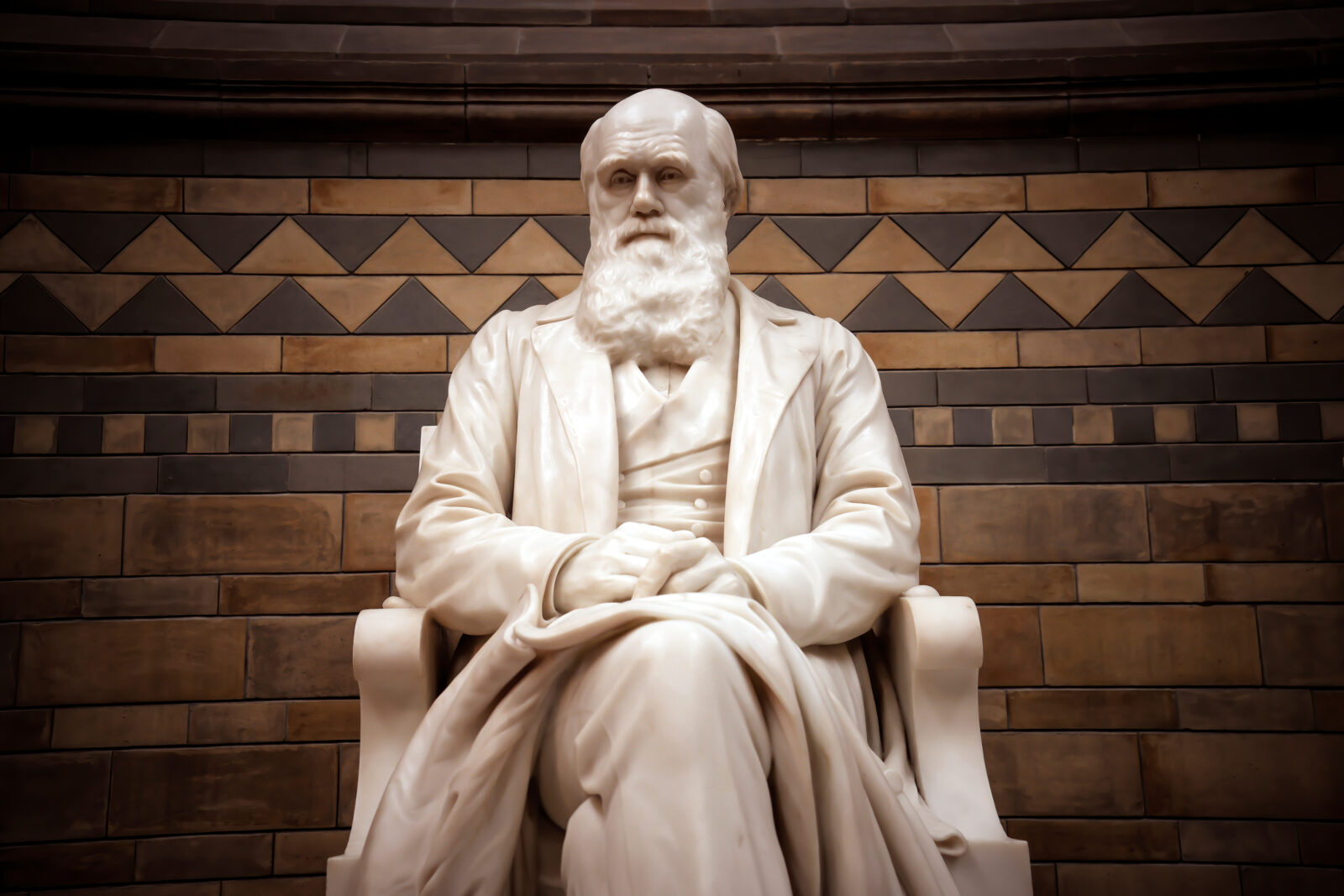


David Berlinski on Nazism, Darwinism, Emotivism, and Nature Rights
On today’s ID the Future, Human Nature author David Berlinski continues his conversation with host Wesley J. Smith. Here Berlinski reflects on the Jewish Holocaust, the destructive nihilism of the Nazis and the SS, and the shortcomings of Neo-Darwinism as an explanation for the diversity of life. Berlinski and Smith also discuss the increasingly widespread attacks on human exceptionalism, the growth of emotivism and why it’s a problem, and the bizarre nature rights movement. This is the second and concluding part of a conversation borrowed, with permission, from Wesley J. Smith’s Humanize podcast.

Neil Thomas and Hank Hanegraaff: An Autopsy for Darwinism
Today’s ID the Future kicks off a three-part series featuring Taking Leave of Darwin author Neil Thomas interviewed by radio host Hank Hanegraaff. In this first part, Hanegraaff begins by lauding Thomas’s book and underscoring how influential Darwin’s theory of evolution has been on Western culture. Then Thomas sketches the cultural milieu and individual motivations that he’s convinced drew Darwin toward his formulation of the theory of evolution by natural selection. Here the focus is not on the various evidential weaknesses of Darwin’s theory (which Thomas does cover in his book) but on a question that puzzled Thomas once he became convinced of just how evidentially weak the case for Darwinism was: How was it that a theory so poorly Read More ›

Bidding Adieu to Steven Weinberg’s Take on Science and Faith
On today’s ID the Future, Casey Luskin, associate director of Discovery Institute’s Center for Science and Culture, discusses his Evolution News article about the recently deceased Steven Weinberg. On Weinberg’s view, one of science’s social functions is to undermine religion, which he sees as superstition. Luskin takes the opposite view and points to skilled and successful scientists he got to know in Africa. He says these scientists are convinced that the supernatural is real and would find Weinberg’s secular Western rejection of the supernatural as blinkered. Luskin and host Robert Crowther also discuss a hopeful trend among some atheists toward a more civil and respectful way of engaging intelligent design, even to the point of acknowledging that design theorists are Read More ›

Author Neil Thomas Takes Leave of Darwin, Pt. 2
On this ID the Future, Taking Leave of Darwin author Neil Thomas and host Jonathan Witt continue their conversation about Thomas’s journey from Darwinian materialism to theistic humanism and a thorough skepticism of Darwinian theory. Here Thomas links the heroic posturing of modern atheists Richard Dawkins and Bertrand Russell, on the one hand, and on the other, the heroic fatalism of poetry stretching back to the early Middle Ages and, further still, to the ancient Greeks. Thomas also draws a link between the animistic thinking of much ancient pagan thought and the magical powers attributed to the Darwinian mechanism. Thomas explains why he now views the latter as essentially “crypto-animism.” In their wide-ranging conversation, Thomas and Witt also touch on Read More ›

Author Neil Thomas Discusses Taking Leave of Darwin, Pt. 1
On today’s ID the Future, meet Taking Leave of Darwin author Neil Thomas, not at all the sort of person one might expect to find waging a campaign against modern evolutionary theory. An erudite and settled Darwinist living comfortably in a thoroughly secular English academic culture, Thomas nevertheless came to reject Darwinian materialism and, as he insists, did so on purely rationalist grounds. Listen in to learn about his journey and about his new book from Discovery Institute Press, Taking Leave of Darwin: A Longtime Agnostic Discovers the Case for Design.

Taking Leave of Darwin’s Warm Little Pond
Today’s ID the Future offers a sneak peek at the new book Taking Leave of Darwin: A Longtime Agnostic Discovers the Case for Design by Neil Thomas (Discovery Institute Press). Here Scotsman Andrew McDiarmid reads from a Chapter 2 segment titled “The Elusive First Step.” Much of the book is a critical examination of Darwin’s theory of biological evolution, in its original and updated forms; but here Thomas takes up Darwin’s proposal for the unguided origin of the first living cell. Thomas, like others before, points up the persistent and growing problems with a designer-free origin of life, but here he also explores some of the cultural influences that primed society to view the leap from non-life to life as Read More ›

Jay Richards Talks God, Carl Sagan, and Word Games
On today’s ID the Future, philosopher Jay Richards, co-author of The Privileged Planet, continues a conversation with host Eric Anderson about Carl Sagan and a short video clip where Sagan fields questions about God. Sagan points out that there are different conceptions of God, but Jay asks, what’s his point? There are different conceptions of nature. That doesn’t mean that nature isn’t out there and that there aren’t true and false things that can be said about it. Also, when the vast majority of people speak about God, they have in mind a powerful, conscious Creator of nature. Sagan plays definitional games by redefining the meaning of “God.” Listen in to learn how, to what purpose, and to hear what Read More ›

Jay Richards: Before Carl Sagan Said It, Science Debunked It
On today’s ID the Future, Privileged Planet co-author Jay W. Richards sits down with host Eric Anderson to discuss the gold rush of extrasolar planet discovery and how the Privileged Planet hypothesis has held up since 2004. Richards teases an anniversary edition of The Privileged Planet in the works, and he and Anderson discuss the statement that Carl Sagan is perhaps most famous for. Richards explains how science had already disproven the famous Sagan claim by the time the astronomer first uttered it to millions of viewers in his documentary series Cosmos.

Casey Luskin Reviews Three Views on Christianity and Science
On today’s ID the Future, host Tom Gilson and guest Casey Luskin discuss a new book Luskin recently reviewed at Evolution News, Three Views on Christianity and Science. Luskin, associate director of Discovery Institute’s Center for Science and Culture, summarizes the three views covered in the book: the independence view presented by Michael Ruse, the dialogue view presented by Alister McGrath, and the constrained integration view presented by Bruce Gordon. Luskin critiques the first two and argues that the dialogue view, in practice, quickly devolves into a monologue where religion is supposed to sit down and shut up the moment there is a point of difference between religion and consensus science. He says this is doubly problematic because (a) scientists Read More ›